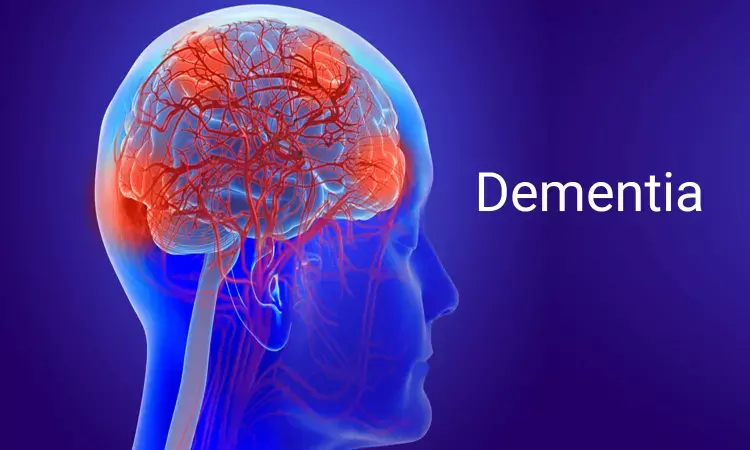- Home
- Medical news & Guidelines
- Anesthesiology
- Cardiology and CTVS
- Critical Care
- Dentistry
- Dermatology
- Diabetes and Endocrinology
- ENT
- Gastroenterology
- Medicine
- Nephrology
- Neurology
- Obstretics-Gynaecology
- Oncology
- Ophthalmology
- Orthopaedics
- Pediatrics-Neonatology
- Psychiatry
- Pulmonology
- Radiology
- Surgery
- Urology
- Laboratory Medicine
- Diet
- Nursing
- Paramedical
- Physiotherapy
- Health news
- Fact Check
- Bone Health Fact Check
- Brain Health Fact Check
- Cancer Related Fact Check
- Child Care Fact Check
- Dental and oral health fact check
- Diabetes and metabolic health fact check
- Diet and Nutrition Fact Check
- Eye and ENT Care Fact Check
- Fitness fact check
- Gut health fact check
- Heart health fact check
- Kidney health fact check
- Medical education fact check
- Men's health fact check
- Respiratory fact check
- Skin and hair care fact check
- Vaccine and Immunization fact check
- Women's health fact check
- AYUSH
- State News
- Andaman and Nicobar Islands
- Andhra Pradesh
- Arunachal Pradesh
- Assam
- Bihar
- Chandigarh
- Chattisgarh
- Dadra and Nagar Haveli
- Daman and Diu
- Delhi
- Goa
- Gujarat
- Haryana
- Himachal Pradesh
- Jammu & Kashmir
- Jharkhand
- Karnataka
- Kerala
- Ladakh
- Lakshadweep
- Madhya Pradesh
- Maharashtra
- Manipur
- Meghalaya
- Mizoram
- Nagaland
- Odisha
- Puducherry
- Punjab
- Rajasthan
- Sikkim
- Tamil Nadu
- Telangana
- Tripura
- Uttar Pradesh
- Uttrakhand
- West Bengal
- Medical Education
- Industry
Study links sleep medications use to dementia risk in older adults

Researchers have recently noted that the routine use of sleeping medication was associated with incident dementia across the follow-up interval, as published in the Journal of Sleep Medicine.
Sleep difficulties are common among older adults, and clinical management of sleep difficulties commonly includes sleep medication (pharmacological and non-pharmacological).
Hence, RebeccaRobbins and her colleagues from the Division of Sleep and Circadian Disorders, Department of Medicine, Brigham and Women's Hospital, Boston, MA, USA conducted the present study to examine the sleep medication use and incident dementia over 8 years using nationally representative data from older adults ages 65 years and older in the United States.
The authors collected data from the National Health and Aging Trends Study (NHATS), a nationally-representative longitudinal study of Medicare beneficiaries. Routine sleep medication use (pharmacological and non-pharmacological) was defined as use "most nights" or "every night."
A total of 6373 participants were screened for dementia with validated instruments that assessed memory, orientation, and executive function. Most of the participants (21%) were aged between 70–74 years and 59% were female and the sample comprised non-Hispanic White (71%).
The investigators conducted a prospective analyses to examine the relationship between routine sleep medication use and incident dementia using Cox proportional hazards modeling and estimated survival curves. Analyses controlled for age, sex, marital status, education, and chronic conditions.
The following results were highlighted-
a. At baseline, 15% of our study sample reported using sleep medication routinely, which is representative of 4.6 million older adults in the US.
b. Covariate adjusted proportional hazard models revealed that routinely using sleep medication was associated with incident dementia.
Hence, the authors concluded that "in a nationally representative study of older adults in the US across 8 years of data it was observed that 15% of older adults report routinely using sleep medication, yet routine use of sleeping medication was associated with incident dementia across the follow-up interval. However, future research may examine behavioral approaches to improving sleep among older adults."
Meghna A Singhania is the founder and Editor-in-Chief at Medical Dialogues. An Economics graduate from Delhi University and a post graduate from London School of Economics and Political Science, her key research interest lies in health economics, and policy making in health and medical sector in the country. She is a member of the Association of Healthcare Journalists. She can be contacted at meghna@medicaldialogues.in. Contact no. 011-43720751
Dr Kamal Kant Kohli-MBBS, DTCD- a chest specialist with more than 30 years of practice and a flair for writing clinical articles, Dr Kamal Kant Kohli joined Medical Dialogues as a Chief Editor of Medical News. Besides writing articles, as an editor, he proofreads and verifies all the medical content published on Medical Dialogues including those coming from journals, studies,medical conferences,guidelines etc. Email: drkohli@medicaldialogues.in. Contact no. 011-43720751


